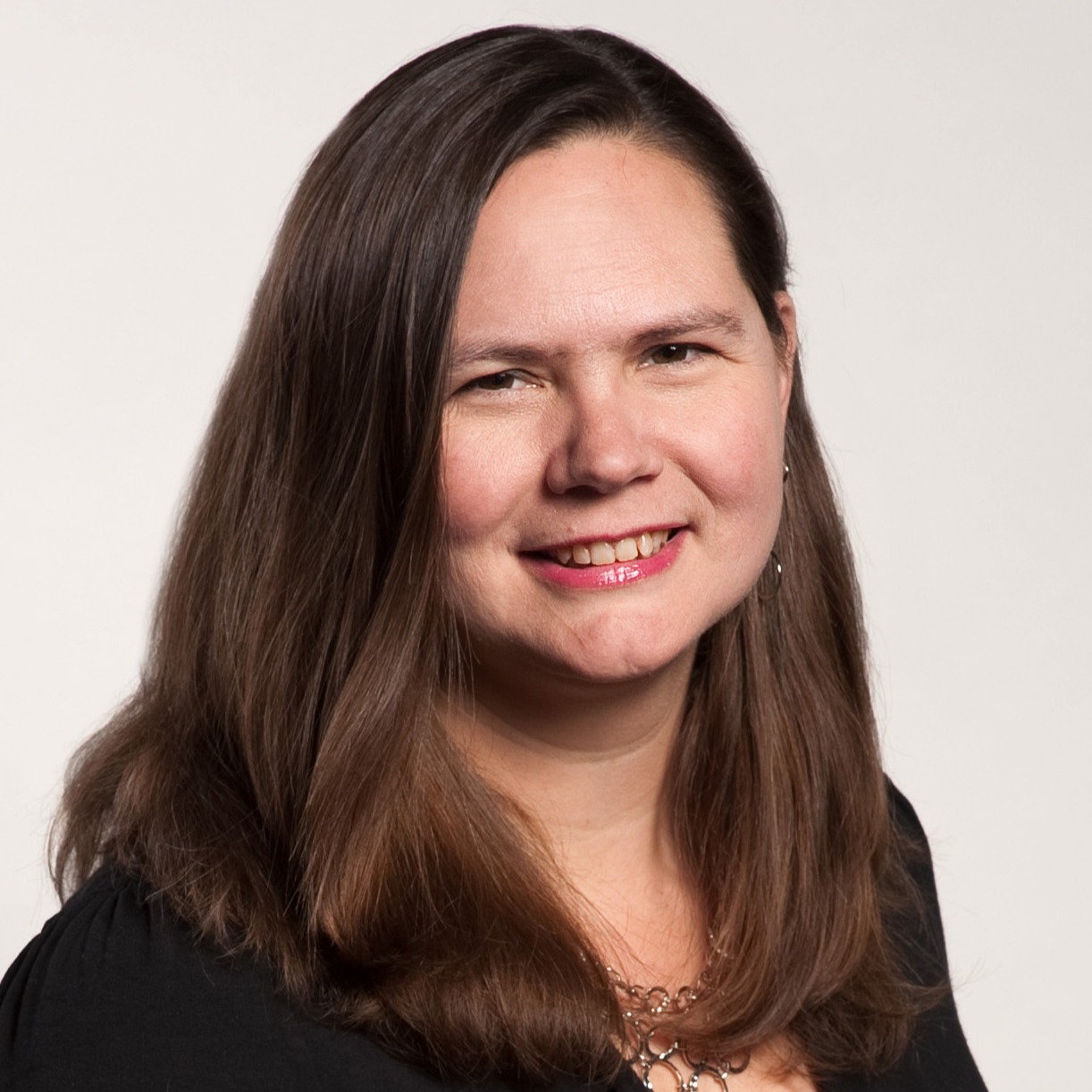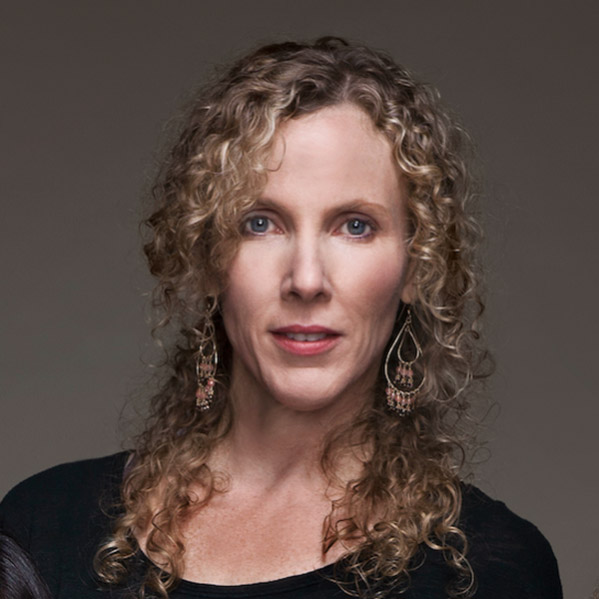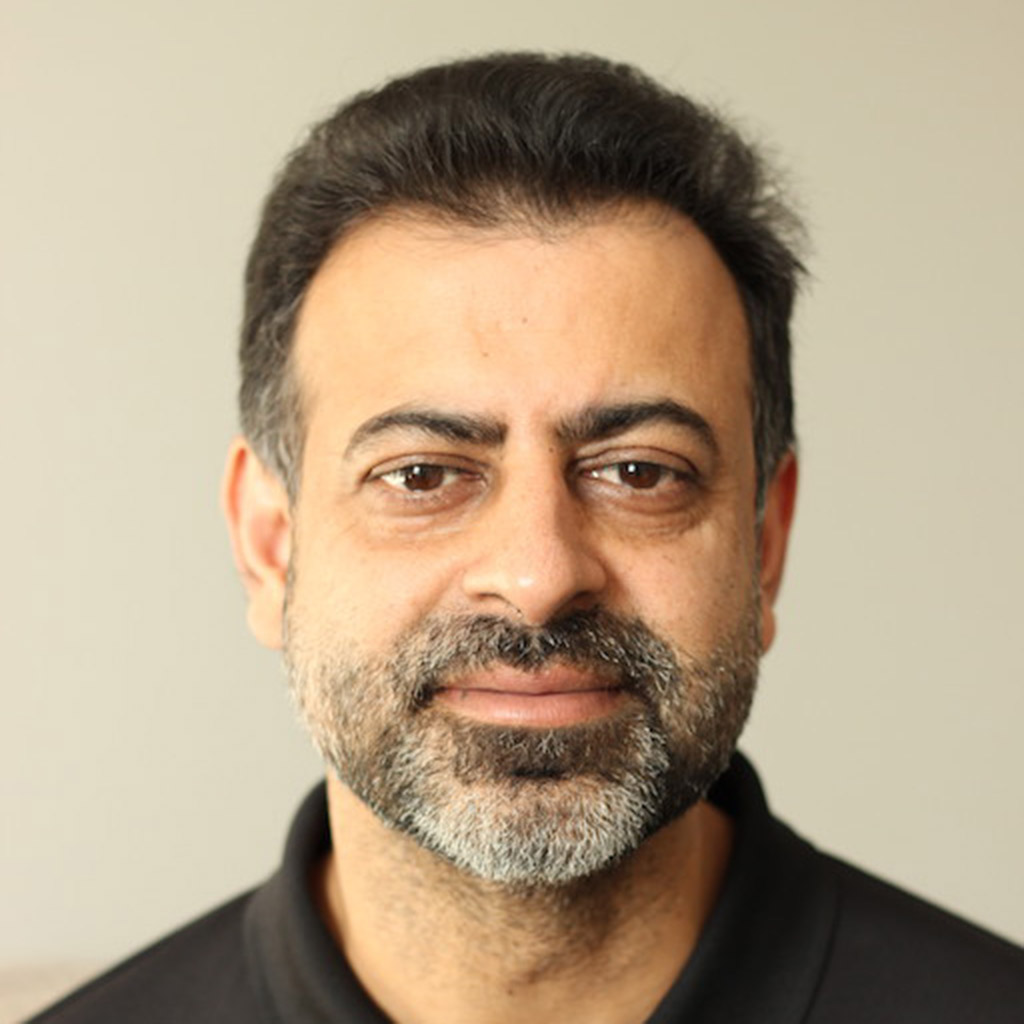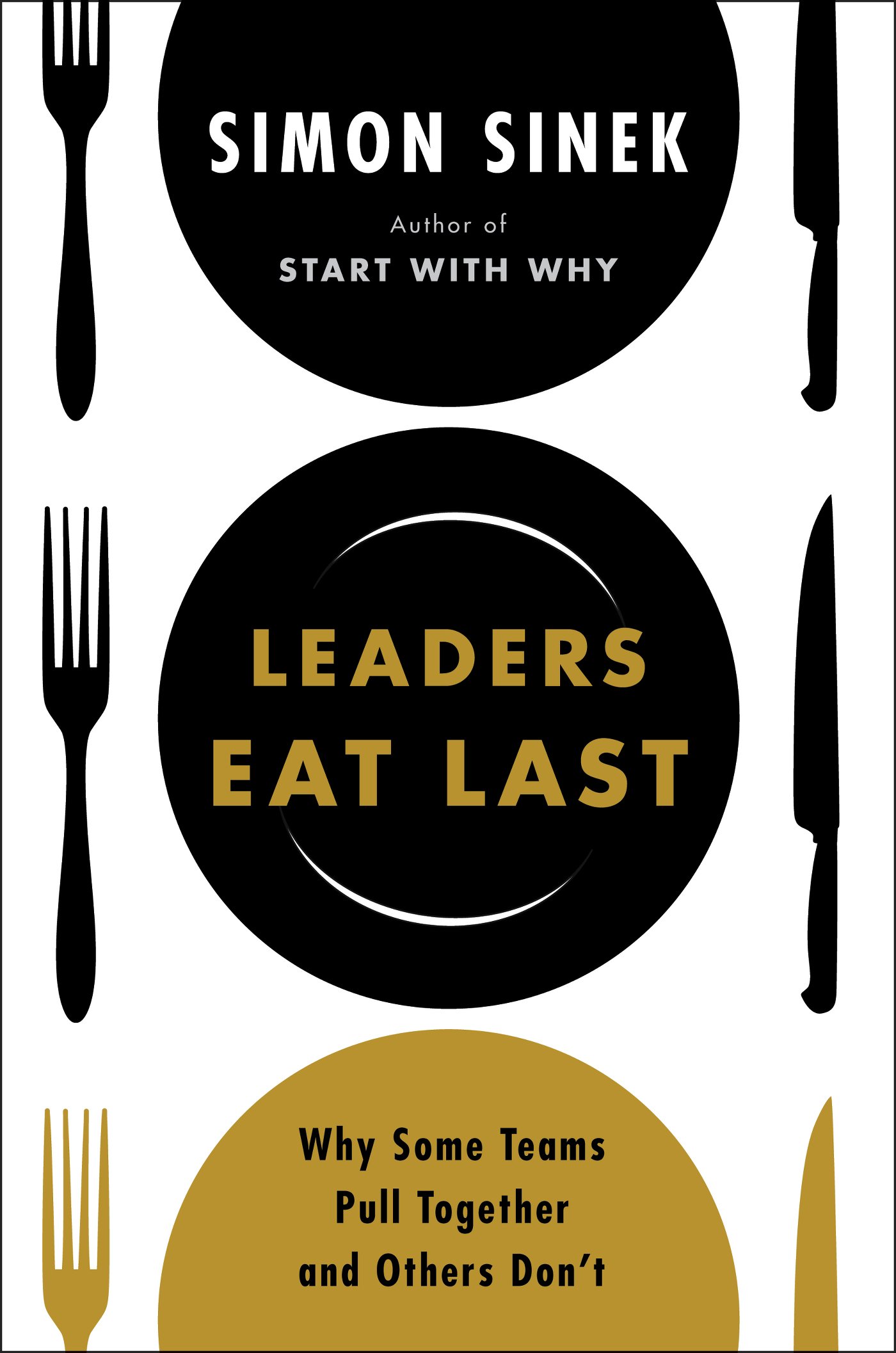Suzanne: All right, mic is rolling. We're here. Lauren Antonelli, Director of Product at Evite. Is that what we call you?
Lauren: That's what they ... On the streets. That's what they call me on the streets.
Suzanne: You just walk down Sunset Boulevard and people sort of part as you're coming through to make way for Lauren.
Lauren: Yeah, I think so. I mostly just run them right over.
Suzanne: All right. I want to go a little back in time before we talk about present day. Intern Sushi?
Lauren: Yes.
Suzanne: You were Director of User Strategy there.
Lauren: Yes.
Suzanne: It seemed, like where you sort of involved in the team that started that? Was that one of your babies?
Lauren: Yeah. It was absolutely a dream. At the time I worked for a film and TV production company, called the Mark Gordon Company. Mark Gordon has been in the business for so many years. He's done Saving Private Ryan, Grey's Anatomy, Criminal Minds. Right now he's doing Ray Donovan.
Suzanne: I never heard of any of those.
Lauren: Yeah, any of those amazing shows.
Suzanne: Yeah, small titles.
Lauren: Yeah. He's really an amazing producer for film and TV. One of his producers on his staff, Shara Senderoff, had this idea for a startup. She had it a long time ago, I think even at the point she was even in college. It was even bubbling up over the surface when were trying to hire film and TV interns. We just wanted quality people, but it was so hard to figure out from a resume who was good or not. The internship business, there's a lot of people in the internship business, there's a lot of companies out there, but her idea was really special and really unique. It had to do with the fact that when you're in college, you don't really have a lot to put on your resume. It's like you got to send out a resume but but you don't have anything to put on it yet. It was all about making these people come to life through digital profiles.
And I had never worked in tech before. I have never worked in any kind of company like that. I was working in journalism, I was working in film and TV. When Shara Senderoff had this idea, I asked to come on board, and said, "Can I help to start this with you? I don't care what I do. I know I'm sort of working at the film and TV company, but I'd much rather sort of get this off the ground. I believe in this idea and I think it's worthwhile."
Suzanne: Send me in coach.
Lauren: I'm in. I'm ready for you. I did a lot of different things. We did a lot of different things together. It was some of the best years that I had, was working with her, because I learned so much about how hard it is to start a business, and what it takes to start a business. You think ... Of course you need things like business plans and revenue projections, and also user acquisition plans, and also to build a website, and to test it, and to redesign it when it doesn't work. You're doing all of this with a couple people, and you're feeling super overwhelmed, because this is an amazing idea that you feel so much passion about personally with your heart, but also bringing it to life is so incredibly difficult. And one of the rewarding parts about being a Product Manager or being in product is your job every day is to try to make those ideas come to life.
Suzanne: Right. I mean, so many nuggets in there that I kind of want to pull out. I think ... And you're right, the saying that we use is "Starting is easy." Right? "Starting is easy is starting is exciting." Five years later, you're going "when will the fun really happen?" And the fun is happening along the way. It is a lot of work, and you call out absolutely I think ... One of the things that comes up over and over again in the conversations I have is "well, what will it be like when I'm in this role?" Well, it will be absolutely different everywhere you go.
If you want to be part of that, right at the ground floor, then yeah, you're going to be calling the plumber, as well as testing the feature, as well as ... If you move to an organization that is a little bit more established, then those things will change, and the way in which your skills and responsibilities will be divided up, will change with it. What is product management to you? If you were like on the spot and you ha ve to define it as you've come to organically understand it.
Lauren: Yeah.
Suzanne: What do you say it is?
Lauren: My role here at Evite right now, is a lot in the ... I'm trying to refocus it a little bit to be a lot more in ... Our team to be a lot in beginning, so the research, the design, the development part. I think historically at Evite and some other places I've worked too, we focus a lot on the delivery, which is a little bit more, in some companies, project management. We're trying to move more into product management, but there is such a blend between the two when you're at a small company. I think that ...
Suzanne: Sorry, you consider this small, but you guys are what? Eighty?
Lauren: Yeah, we're about, probably now across all our offices is probably about ninety.
Suzanne: Right.
Lauren: But I do feel like it's a small company even though I have worked at a start-up. Maybe that's just because when I think about ... I met a guy who runs product at yesterday, I had coffee with him, and he was talking to me about they had ten product teams. I remember looking at our CEO being like, "Oh, someday we're going to have ten teams, not just four people." Ten teams and four people, you know some day.
I think that product as a whole is like you said, it's so hard to define because it's different at every single place you go. To me, it's a lot of being a driver and it's a lot of making sure that shit gets done in whatever way that that means. Whether it means you're actually designing it, whether it means you're pushing it through, you're really the person to get it out the door and then evaluate it, and make sure that it's the best experience.
Some teams I think focus very much on just the customer experience, just for their core user base. I'm really working at Evite to make sure that our product team understands that we have lots of different kinds of users, our stake holders mainly. It's not that we're just building a customer experience for our hosts and guests at Evite, we're also making sure that our users, like our advertisers, are happy. Our stakeholders within the company, we do a lot of work for. For the marketing team or the content team, they need stuff all the time and so, our product team works directly with them as well.
Suzanne: What do you think that it is that so many people hop into product or organic accidentally? You talked about your journey sort of being in media, just wanting to roll up your sleeves and try this thing. Many of the people that I speak to, it's similar. They did not start out on this clear path of product. That might be different five years from now, there might be more ... Maybe everyone will listen to this conversation, these conversations, and understand that path more clearly, but how do people find product as a destination?
Lauren: I've been thinking that a lot lately, because I had to hire a team in this past year. To identify the kind of people you want on your team, you have to identify what you believe makes a good product manager or why people get into it. Part of me believes it's a personality thing, and it really is an inherent craving of responsibility, which may sound like a weird way to say it. I think that every great product person that I've met that has really been impressive to me in terms of what they produced or what they've done, has been somebody who couldn't wait to not only do it themselves, but take whatever the result was and make that better, and then keep building and building and building until it's perfect. It's somebody who is not necessarily ever quite satisfied.
So that is a hard personality or work trait to find, but when you do find it, it's so easy to identify. It's so quick. And then you know you have to have that person, because I really believe that every product manager should really aspire to be a product owner.
When I first came to Evite, my first boss here gave really really made sure that I understood that I was going to be the owner of a feature, and that meant from the beginning to the end, and I wasn't going to just be doing one daily piece. That meant I had to do things like business models, wire framing, writing the stories, testing it through, and making sure that it got out on time. For that, I am forever grateful, because for product managers only doing one piece of that, is really hard to ever be responsible for the entire process.
I've seen a lot of different product managers. I've seen a lot of different people who are really good at certain things, UX or wire framing, or writing stories, but the best ones are sort of craving to be the owners from the beginning to the end, and really want the responsibility that goes along with that.
Suzanne: Did you learn a lot of those skills on the job? Or else after hours going, I got to do a wireframe!
Lauren: I learned them all on the job.
Suzanne: Right.
Lauren: I mean, I learned them all the hard way. I learned them all by like handing somebody a piece of paper being like, "This is what I want it to look like," and them being like, "What the hell is this?" I've been like, "Oh, I think that's supposed to be this part of the website." I have a ... The most embarrassing thing that I use is like a seven dollar wire framing tool. All I do is copy and paste, and screenshot things on top of each other until they look nearly pixel perfect, and then I attach that to a ticket. It's funny, when my product managers start they want things like Photoshop and Axure, and all these amazing tools, and I will forever be loyal to my seven dollar framing software, because it works for me and it gets the job done.
One of the first things somebody said to me when I was working in product, a developer said to me, was like, "I don't care how you tell it to me, just make sure what you're trying to tell me is in here. Whatever way that is. If you have to write it out or if you have to sketch it out, or if you want to put it on a whiteboard, I don't care how you tell me, but just make sure you have told me." Then I realized that everybody's a little bit different and everyone needs something different. I had to kind of learn what my way of story telling was going to be.
Suzanne: Right. You made a comment before, before we were rolling the interview, and said a lot of what you're trying to focus on right now is shifting from an execution mindset to a leadership mindset. I thought that was interesting, because even as you described, product managers are kind of in the thick of it, they're inherently problem solvers, they seek that out, so at what point did you realize "I got to kind of get elevated here," and where do you struggle in that?
Lauren: Oh yeah, it's so difficult for me. It's so difficult for me. I think when you inherently crave responsibility or if that's like part of what I believe makes a great product manager, then what happens when you have to give that responsibility to just somebody else? What do I do? I'm like, "I have to delegate? I haven't done that ever in my entire life and I have to do that now?" "Well, you wanted a team of four people, you said you needed more help. Now you have these people, what are you going to do with them?" Oh yeah, you're right now I absolutely can't do it all myself, because we're paying all these other people to do it too.
The struggle for me ... It's twofold. One, is it much easier for me just to write the story or write the design, or do the mocks myself? Yes. Is that scalable for our business as long term to do that forever? No. Do I want to be the only voice, the only creative person, contributing to our website? Absolutely not. I don't pretend to be anything of some kind of superhuman product person. I'm somebody who has an idea, tests it, and if it doesn't work, then try again. I fail fast. So one of the hard parts about going from being an executor to being a leader, is teaching that kind of mindset to someone else, setting those expectations for somebody else, and then giving them the tools to be able to do that.
I think when you create anything, if you're in a position of being a designer, a UX person, or product person, you're creating something, you feel really close to it, you feel very personal to it, you feel very protective of it, and it can be hard to see that it doesn't work out, or it doesn't succeed in the way that you want. Or if you were completely wrong, which I'm wrong every single day.
Suzanne: Do people tell you, by the way, or you're just like ...
Lauren: Oh my goodness.
Suzanne: Oh, I was so wrong but I'm not going to admit that?
Lauren: Oh, I admit it everyday. I'm so wrong, and I admit it even when I have an idea, "Guys, I don't know if this is going to work, but this is my best shot. This is what I got."
Suzanne: Okay.
Lauren: Here's why I think it'll work, here's my first version of how, let's put it out. I got three back up plans. I got millions of more ideas.
The second part of what's hard being an executor to a leader, is when I was an executor, I was an asshole. I was in the meetings being like, "I want it by the end of the week, or if it doesn't work this way, it doesn't go out." I could talk to people this way, because there was somebody above me who was kind of the shit shield, if you will. I was on the bottom floor being the aggressive bulldog saying, "No, I want it now. No, I want it this way." I had that reputation of being that.
Well now, when you have a team and you sit at the table, it's more about diplomacy and it's more about cooperation, and it's more about giving. I feel like I make way more concessions now than I've ever made in my entire life. I feel like I'm always making these side deals, "Okay, you give me this and I will give you this. I made no deals when I was an executor, it was my way or the high ... Let's just get this done, let's get it out the door.
Suzanne: Some people might call that karma, by the way.
Lauren: Yeah, I think it is.
Suzanne: It's coming for you. It's coming around for you.
Lauren: It's me growing up.
Suzanne: Right. Painful.
Lauren: So painful, but worth it.
Suzanne: You're right.
Lauren: It feels good though ...
Suzanne: Yeah.
Lauren: ...To know that I did things the hard way, and this is actually much easier than you would've ... I would've never thought that.
Suzanne: All right, so here you are. You've got this team, you're holding on to all these tasks, you love to do the work, and delegating doesn't come easy, were there any tasks that you were like, "Thank goodness you're here." I want to know what's the stuff that you happily dumped on the desks of the new team day one.
Lauren: Organizing the backlog.
Suzanne: Right.
Lauren: That's such a shitty thing to say. Oh my god, it's terrible. I hate organizing the backlog. I hate it so much. It's a mess here.
Suzanne: Do you guys have any rules like there can't be any more than forty tickets in the backlog at any given time, we do our grooming every x, or you just have aspirations for those kinds of rules?
Lauren: So many aspirations.
Suzanne: Right.
Lauren: I'm so aspirational for an amazing backlog. In fact, I'm so aspirational about it that ... One of the great things about how Evite is run is our amazing CEO, Victor Cho, has set up a very well oiled machines. Every year we set out strategic priorities, organizational priorities, and operational priorities as a company. Then each sub team, product being one of them, has their own that ladder up to those. Operationally speaking, one of the big sub team priorities for product this is year is getting that shit on lock, because it's not scalable to have a never ending backlog. It is not good for a scalable team. If our team doubled in size or the development team doubled in size tomorrow, that would be a terrible place to be. House keeping is not necessarily something that is anybody's favorite task, but it's something that is very important as we grow as a company.
Again, going from an executor position, I didn't have to worry about that. Going into a leadership position, I have to worry about that. I have to think about how not only the product team scales over time, but how that scales throughout the entire organization. We need to be people who get things done in the time we say we will and the way that we say we will, and you can't do that if you have bad grooming and housekeeping, and just a mess going on underneath the hood, right? Grooming is not something we do well yet, we do Agile-ish. I think we do a lot better than other places do it, and we do it better every single day.
Suzanne: The real dirty secret about that job, I want to just put this on the table, because this comes up a lot too. There's utopian idea of what's happening in Agile, as is documented and ... I'm sure there are companies that are out there that are following it to the letter, but I don't know any of those companies.
Lauren: Me neither.
Suzanne: The saying is like, "The right Agile is the one that works for you," but I think this is an important demystification.
Lauren: Yeah.
Suzanne: Everyone is kind of looking over across the street at everyone else and going, "Are you guys getting this right?" Why is it so hard or what is it about Agile that you feel makes it easy to talk about conceptually and much harder to actually stand up by the book?
Lauren: That is a really great question. I think about that a lot actually. I really do, because it shouldn't be this hard. It's actually not that hard of a process. Part of it is, at least here, is time consumption. It is very time consuming to groom, it is very time consuming estimate, it is very time consuming to do retrospectives. I don't have the time. This tech team doesn't have the time. We just don't.
We believe at Evite ... We have a whole series of amazing values at Evite. One of them that we decided on as a company, every member of the company contributed ... One of them is "Move fast with sure footing." "Move fast" is very important, and sometimes Agile feels a little slow for what we need. It's an investment in process to make yourself better, just like exercising or eating right. You know it's good for longevity of your health, but sometimes you just want In-N-Out Burger, because you're hungry and it's a drive through. I don't know. It's just sometimes you just got to do, what you go to do today. I don't anticipate things going wrong when we have a release, but they always do, and then you need to hotfix it or something, and that takes a whole 'nother day. There's things that interrupt constant meeting time or constant gathering, even when we have stand-up. I would love to have stand-up be, "What did you do yesterday? What are you doing today? What are your blockers? It doesn't put out to do that?
Suzanne: Would you love, because even when you just said that, it didn't sound like you would, "I would love to have this meeting where I say that stuff."
Lauren: I guess I just don't see as much value in that as being like, "Where are we on this?" Yes, I guess a blocker is like, "What do you need?" But also like, "What's going on here?" Tell me about ... And yes, the whole extended team being there takes up a lot of time and it is a time suck. Our stand-ups are a little bit long, they're probably more like twenty minutes. Sometimes I sit, which is not good.
Suzanne: Sometimes I sit during our stand-up.
Lauren: We work out issues there and we work through problems there. Sometimes I think Agile's meant to be quick and it's meant to be a process that helps you move faster, and sometimes I think we know inherently who we are, we can move a little faster in a different way. I think the nice part about Agile, and they say all the time is that it's you take it and you apply it to your own business as best you can, and you always try to do better at it. Whenever we feel like failures at it we're like, "We'll get it next time," which is like the happy little note at the end Agile, right? It's like, "Here's the whole process and don't worry, you'll never quite get it right, so it's okay if you constantly are improving."
Suzanne: Right.
Lauren: Gold star for effort.
Suzanne: Yeah, it reminds me ... I don't know if you ever read the book "The Four Agreements," it's a sort of ...
Lauren: Yes.
Suzanne: Okay.
Lauren: I have.
Suzanne: Well, what I loved about reading that, you know you're reading it, you're reading it, you're reading it, you're subscribing, and then you're thinking in your mind, or at least I was, "How am I actually going to do this?" Then the last agreement comes along and it's like, "And just do your best." It essentially- I’m being a little facetious, but it basically gives you permission to not really have to adhere too much to the rules. It's sounds a little bit like what you're saying is like, "The best thing about Agile is we'll iterate, we'll get better, and we'll evolve over time." Incremental progress over time.
Lauren: Which is sort of the best thing about product, and you have to believe that about product.
Suzanne: Yeah.
Lauren: It's hard when you're at a start and you're trying to put something out for the first time. That I understand. But if you're at an established company with an established product, and you're just trying to make new features or iterate on what you already have, you have to believe that everything you put out is not going to be perfect, because then you're never going to get any better.
Everything is a constant work in progress. If you've hit any kind of place where you're like, "And I'm done here," then it's probably not either the place that you should work anymore or the product you should work on anymore. Because setting new goals for yourself, higher goals, harder to reach goals, is part about being an owner, right? The responsibility comes with setting impossible dreams and trying to reach them. That's why being never satisfied is a really great quality inherently to have, because you're always searching for the next best thing.
Suzanne: It actually like it's this kind of even more nuanced hybrid of never really being satisfied, but also not being a perfectionist, because if you're a perfectionist, then you're so precious about it and kind of can't stand the failures, the inevitable failures. You have to really really care but not 100%.
Lauren: You have to be committed to failing over and over again.
Suzanne: Right. All you've really done so far is validating, I think for all of us, that this job and this domain that we're talking about is so unknowable. We're trying to demystify it and then we just kind of keep re-mystifying it as we go.
Lauren: I mean, there's certain things that I know, I feel like I know. I feel that I've learned and I'll take with me anywhere. Some of the stuff may not really be direct to product. I had a great conversation with Noor, you know on my team, about this. We were talking about what makes a good product manager in my eyes or at least be a good member of our team, and I said, "At the very simplest level, it's somebody who takes work off somebody else's plate." I realized that that's actually extendable across any job.
When you think about how you can be useful and helpful to someone, it's not necessarily being the smartest person in the room, or the only person who knows about something. It's more like how can you contribute to enable everybody else to work faster or better. Coming up and saying, "Hey, I know you got all this stuff. I can do the first half of this stuff for you. Can I help give you a version of that and you can just check it off, and look at it before it goes?" Yes, oh my gosh yes. "I see you have a meeting from nine o'clock until six. This meeting seems ... "
Suzanne: I hope I'm never invited to that.
Lauren: Yeah, those are those meetings I have, well it's blocked. And the she says, "Well, I can volunteer to go to this meeting for you so you don't have to" I'm like, "Amazing." Anytime you can take work off somebody else's plate ... I'm actually doing that at my level, "Where can I take off of my CEO's plate that he doesn't have to worry about that I can take?" I think that's the best way to make yourself indispensable to a team or to a company. I feel like I learned that really early on by grabbing different kinds of tasks and things like that.
Suzanne: You got that lesson from the startup world, so you never really shook that, "Let's go get this" attitude.
Lauren: I'll keep that forever with me. That's one of the best lessons I've learned. Like how can I be helpful in a situation is I'll be helpful by being helpful. I will do the work, I will step up, I'll do my best job and present options, and see where it can go.
Suzanne: A little bit of a tangential question here, but something you said prompted it, how quick are your users to start throwing tomatoes when they don't like something? You're pushing out a new feature or even maybe it's just a minor interface update, when does the first complaint come rolling in? How does that typically unfold?
Lauren: I want to say right away, but what's interesting about it is Evite is ... When I think about it as a product, I don't necessarily think about it as an every single day product. It's not like Facebook or Instagram that you are just scrolling through and randomly doing throughout the day, Evite is for parties and events, and some of your most special moments. A birthday only happens one time a year, that doesn't mean that you won't come for another event, but really we have you for a very small amount of time. In that amount of time, whether you're a host or a guest, we need to make your experience as easy and memorable as possible. That's what Evite is all about.
Sometimes when I think about product that are like ours, I think more about like apartment rental websites, like you move once every four years or three years, or something. In that time period when you're looking for something, if we don't catch your eye or make it really easy for you to find that apartment or find what you're looking for, or search or filter, you'll go somewhere else, to another one. You're not going to not get another apartment. You're not going to not move. Right? You're not going to not have your birthday.
We struggle a lot with when we change features, somebody may see it for another year, right? It just depends. You have power users, who use Evite all the time and they have like recurring events, like poker night or something like that. Then you have all the way to things to professional events that are just for big get togethers or weddings and baby shower. Kid's birthday obviously is like the bread and butter of Evite.
I think that you'll hear it in ... We have a massive scale. Evite is the largest online invitation company. It was also the first, so we do have the amazing benefits of things like scale. We can put things out to people and we will hear feedback right away, but you're not necessarily going to have the kind of feedback that you would get if it was an every day product, right? Sometimes you won't hear feedback about something for a very long time after, because maybe it was a lot of new people ... It just depends on what it is.
We have a really great customer experience team here, and they lead our Voice of Customer initiative, which is one of our strategic priorities at Evite. They're really committed to being the voice of when something happens. If something breaks or if there's feedback about something that they don't like, those things all get recorded and logged, and presented weekly to the entire company. They're on the ground listening to every single thing that's happening. We do NPS, Net Promoter Score, so we send that out to host and guests, and we record every comment that comes back form that, and it goes into one of these funnels.
So we’ll go real fast. We had a feature that was confusing people. They were accidentally enabling it and it was causing mass hysteria, and it was terrible. It made perfect sense how it was set up, to us. We're like, "How could you accidentally add this by taking five steps?" That seems unusually weird, but the numbers spoke. It was what it was, so we just said, "Okay, let's start tackling this as a whole problem. We don't want to remove the feature, but we need to make it easier to use. What's step one? Well, let's change the . Let's make it really crystal clear." The problem got worse. I mean, you can't ever bet that you're going to ... "Okay, well let's move the positioning. Maybe the positioning is scaring people, because they thing it's mandatory when it's really optional." "Oh, that helps a little, okay."
All we're doing is taking like boulder and chipping away at it when we have an issue like this. We do hear, and the customer experience team does an excellent job of synthesizing it. Somebody could be like, "I don't know how to do this," and someone else can be like, "I got confused" and over here it's like "This doesn't work," and they all kind of come together, and you're like, "Okay, here's the problem with this." They do a really good job of making sure that these things are sort of in almost epics or swim lanes like, "Okay, here's all the uneasy complaints or weirdness about this issue," and we take that feedback, and we just try to iterate on it and fix it a little bit until we get it right.
Suzanne: I mean, it's so hard to imagine people up in arms. It's such a lovely company. Other products I can imagine ... One of the ones that I like to talk about a lot is my frustrations around SalesForce. I never miss an opportunity to talk about, or really complain about, SalesForce, even as I continue to be a customer. I can see it's like you're roadblocking me, you're making things harder than it needs to be. But an Evite is like, "Come to my party." I can't imagine somebody raging against the machine in those moments. Do they get real mad or it's just more like, "Huh." Tell me the maddest somebody ever got about something.
Lauren: Oh my god, this week a lot. I mean, you only have one fifth birthday and if Evite messes it up, this mom, there's only one to blame. Right? I mean, this mom is ... There's nothing more powerful to get all of us moving off our asses than ruining a kid's birthday. I mean, I will not have that on my conscience. I'm not going to be responsible for that. Evite is supposed to be about getting people together more easy and conveniently, and memorably. We are not in the business of messing up anybody's party.
When something like that happens, it sits with you at night. I mean, my god. I know we're not curing cancer and we're not solving a world issue, but we are in your most special moments with your closest family and friends, and we are facilitating that. If we negatively do that or we mess that up in some way, you can't get that back. We are very careful with that, and we take that very seriously. Maybe that wasn't always in the history of Evite, I mean Evite's been around for twenty years, it's been through a lot of different kinds of changes in leadership, but our CEO now, Victor, is committed to that. That is the highest priority, because that's the only way a business can actually live on for another twenty years. That's what every person here is committed to doing.
You'll hear girls on the content team or guys in QA say something like, "My customer." I've never worked at a company where people cross ... "My customer," I mean that's a very personal thing. "Well, my customers don't like this" or "I wouldn't want that to happen to my customer." There's an ownership here of protecting the users and making sure that these families and these friends have the best time ever. When we're getting in the way of that and we're failing, it's really hard to swallow.
We bring customers in and we have these retreats twice a year. We have customer panels come in and we choose customers who are , we choose customers who basically lost, and we ask them to come in and share with us. Some people get emotional, it's actually pretty hard to watch. It's really hard for me to watch. It's really hard to sit in front of your actual customers when they're telling you what you did or what your product did, and you know how hard you work on this thing. That's a hard moment, but it's also the moment that makes me get up every single day and actually come to work. That's my motivation.
It's taking something that ... I said this to somebody today actually. We were talking about developers and the engineering team and I said, "When you find a bug or something fails, that's their work getting criticized." Think about in school when you were giving a presentation and the teacher gave you feedback in front of everybody, like it stinks. You work hard on something, you have pride in something, so when your users complain about something or when you hear like, "You just messed up my kid's birthday and I'll never use you again," you're more committed than ever to fixing it.
The best part is we don't hear that as much anymore. So, the best part is a few years ago, it was a lot and we have committed so much to making these experiences better, that it just disappears. No what we do is, every time we get something that's really good, we actually print it out and put it up on a wall. We call it "Customer Saved" and we fix people's events manually. Even if it's one person's event and one little thing goes wrong, we just do it. It doesn't matter. It doesn't matter if it's something that effects a hundred users, a hundred thousand users, or one user, because it's still a party and it's still that person's. It goes right into a sprint, it's the highest priority, and we just make sure that that is the number one thing.
Suzanne: When you talked about the weight of somebody’s party going wrong, I had this visual of a bunch of you guys jumping in a car with a bunch of balloons and being like, “get to that party immediately – we need to – it feels like that serious.
Lauren: It’s tough. I always felt that I wanted to live a life that was passionately creative about something that was important. Which is why I went to school for journalism. I felt the news was a very important service to people. I still believe it is. I worked a sales job for a little bit and I was so unmotivated by it. I wasn’t helping anybody. Intern Sushi was one of the first times after journalism where I felt like I was helping people. I was connecting – I was helping connect these kids to their dream jobs. And I was helping companies find people who actually wanted to work there and not just punch in and out. And some of those kids – I remember one of them reached out to me on LinkedIn and said, “I still work here.” This is amazing. I just felt that was a good service. I felt good about my job. Evite is amazing for that. Because when you do it right, it’s almost like we’re invisible. You know? If the product works in the way I want it to be designed, you shouldn’t even really know we’re there. Until you want to go and remember it. And that’s a lot of the stuff we’re working on this year. Which is the memory that goes along with it and that emotional tie back to your party or your event. Or just a moment that you had with your friends and family.
Suzanne: That was beautiful. I’m a little emotional about it, actually. I keep looking out and expect everybody to be standing with cake or something. Send a memo to get the cake-
Lauren: There’s a lot of cake around here
Suzanne: So you brought up our friend Noor. Noor is one of your junior product managers. And she was a student of mine. At General Assembly. So remind me, did she sign up of her own accord or did you guys sort of say, hey, go here and do this?
Lauren: I said, hey go here and do this. But I did it because – I almost did it to prove to her she knew more than she did. So when Noor came here and she interviewed she had come from a mobile apps lab and she was a UI designer and that’s what she told me. And then I looked at her work and I said, you’re actually a product manager. And she said, no I’ve never done product. And I said, well just because someone told you it wasn’t your role doesn’t mean it wasn’t what you were doing. You’re not just putting colors and shapes on something and applying a design style aesthetically. You are designing apps and how they should work and the UI / UX that you’re doing is – you may not be writing a story out, but you’re doing that through your wireframes and your designs. And I said, that’s why I need you on my team because you have a lot more experience than you think you do and I will teach you everything else that you need to know. But there’s people that can teach you better – and that’s General Assembly. So I said, I actually put into her offer letter – I went back to the CEO and said she’s game for it, there’s no better company out here that I think can show you the breadth of what you can do in product management and she wants to do it, can we pay for her to do it? He said, absolutely and I was like, that’s why you’re amazing. And we put it in her offer letter – she went to school, twice a week with you, she would come in and talk to me about it the next day. She was extremely excited about it and she would say things like, my gosh, remember when we did this last week? Well actually I did this in school. She was connecting the dots and I actually think it got her up to speed way faster than it would have been if I’d sat with her and brain dumped on her.
So physically doing the product management work – whatever that means – whether it’s coming up with a new idea, whether it’s making presentations to present a new idea, or doing the user research behind it. Whether it’s designing it or making wireframes. Actually physically doing it is the best way to learn and I really feel like GA does a good job of that. Every class I’ve ever taken with them I’ve felt like I walked away with an actual nugget of something I could use and so I really wanted her to experience that as well. I was so proud of her when she graduated we made such a big deal about it – we went out drinking. It was amazing.
(laughs)
Yeah she knew a lot more than she thought she did, which is, I think a lot of product managers. What I find – when I was interviewing for her position and other ones – what I always found disheartening, where I would take a candidate aside is when they really could only talk in product management speak. Ya know? But they couldn’t really tell me how to make anything. You know, tell me a story about something you want to make and how you would do it. Where do you start?
Another really hard part about product management is taking a large problem or a large idea and breaking it up into doable pieces that you can execute on. That is difficult to do. I can imagine an entirely new invitation experience for Evite. Where do you start? Where do you even say, this is a minimum viable product line? Where do you say, this is where I want to end up three years from now? It can feel overwhelming. I’ve seen product managers get overwhelmed in their own jobs of trying to do that. I think that’s a hard skill. But breaking something up into pieces is the only way to really get anything out. Because otherwise you’re going to sit on something for a really long time. You can design something amazing and terrific and put it to market and it doesn’t work and you’ve wasted a lot of time. But if you fail faster and you test little pieces along the way you’ll get to a better product that your customers have actually validated that they wanted, faster.
Suzanne: Right. And well probably it’s one of the fundamental reasons product managers exist. Because if engineers alone were tasked with the responsibility of finishing – it would never be done. They would be tinkering forever.
Lauren: Yea – gotta get it out.
Suzanne: The analogy I like to use is the classic car in the garage. That thing is never going out on the road, you realize. You just…
Lauren: Tinker forever.
Suzanne: Resources. Right. We talked a little bit about this. One of the reasons we’re doing this - 100 Product Managers – is because, where do we go? As the professionals. Where do people who are looking it go? Hopefully this can become a place for that. What are some resources that you know of that you can recommend, be they groups, books, podcasts, you know – that are out there that you think, if you’re not tapped into this, tap into this now. There’s great content, great advice, great mentorship – whatever the thing.
Lauren: Yeah what’s funny is one of Noor’s personal side projects, as a member of the team is – whenever we send out an article or something to the team, if it’s a person or an idea that we like, she actually puts it in our product inspo confluence – you’re actually in there.
Suzanne: I am?
Lauren: You are! As a resource for our team. So I actually think it’s very important if you’re on a team or even as a person you collect this. Because you’re saying it’s not very much out there and it’s true. So when you find something good you take it and you keep it and you look back on it.
So one of my favourite people that I follow on Twitter, that I really love, is Teresa Torres – she has productalk.org – and she really talks about product in a very accessible way. About design and delivery and measuring the data afterwards. She runs little bootcamps, she has really great articles that are thorough, but also attainable. So I really like her. That’s for product management in general. In terms of tech overall, Benedict Evans is one of my new favorites. He comments a lot on what big trends are in tech and where they’re going. He also retweets from a lot of really good people so I find people from him a lot. He also has a weekly newsletter that goes out that’s just links with one sentence and so many of them I end up sending out to our team. Because even if they’re not applicable to the business today, they’re about where we’re going or where we need to go.
But the other thing I like to do, and I do this on Twitter too, products that I really love – well-designed products that I would love for Evite to be like, I go and find their UX and product people and I follow them. So Slack is an amazing product overall. How they do notifications and how they make sure they’re not sending too little or too much is a delicate balance and we’re designing a lot of stuff around that now. So I just love what they do and they’re very smart about it – so I go find the people that work on those teams and see what they read, which is very big.
And then there’s – everybody has probably seen this a million times – but Simon Sinek has this amazing talk about why you do something. I think he calls it the golden circles-
Suzanne: Yeah – Start with Why is the book and yea, the golden circle. It’s coming up a lot lately in my conversations.
Lauren: It’s really inherent to product people. And then I just got his book, Leaders Eat Last. Because obviously I’m going into this leadership position and..
Suzanne: You’re prepared to starve for your people?
Lauren: (laughs) You know little things you do that they see, you don’t always know. And I’m super aware of my behaviour and how I act with people and the example I want to set – for Noor and Brittney and Nick. So Leaders Eat Last is, what kind of leader do I want to be? I want to be somebody that inspires people, not demands of people. As I was saying, as an executor I was much more aggressive and a demanding person – this is what I want. And now it’s, where do you think we can go? How are we going to get there? There’s a lot more we that happens. And I’ve learned a lot of that from him.
Suzanne: Yeah. Great speaker as well. Love watching him speak. Thank you so much. I have one last question for you and then I’ll let you get back to the party. Do you have – I’m sure there are many but – a personal mantra or sound bite? That kind of quote that would go on the mug – your startup vitamin legacy so to speak? That you use to guide yourself professionally, personally whatever. Something you’re comfortable to share with us?
Lauren: Yeah. It’s not pretty. People around here say Lauren is GSD which is Get Shit Done. I inherently believe for you to be a successful product person, business person, anything person you actually have to do. And I feel it’s very important for me not to just say, but for me to say and do. My say-do ratio is extremely important to me personally, but it’s also very important for me to represent for my team. So we say what we’re going to do and we do exactly what we say we’re going to do. Every single time. That’s how you build trust.
I don’t need to be the smartest product person on the planet. I don’t need to be Steve Jobs. I just need to be somebody who does what they say they do. And that’s what I’m committed to – getting it done. Getting shit done.

In this episode:
- Where do startups go wrong with implementing OKRs
- Can OKRs really scale for enterprise?
- What are pipelines and how do they change the way we think about product roadmaps?

In this episode:
- From retail to product management
- Why relationship building is the number one required skill a product manager could have
- The value of having confidence with humility

In this episode:
- Establishing a clear vision of your career path
- Using metrics to answer burning product questions
- What product managers can learn from biology





